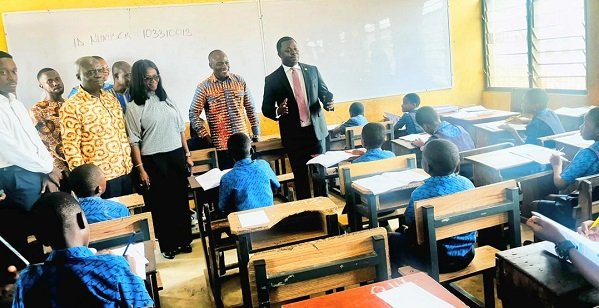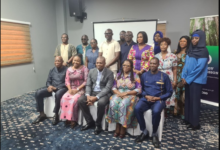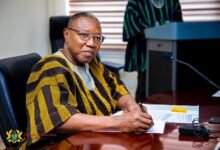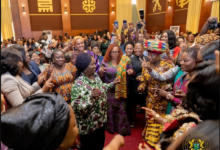
The Ministry of Education is closely monitoring the ongoing National Standardised Tests (NST) among primary school learners across Ghana.
This initiative, which began in 2021, initially included only public schools but has since expanded to incorporate private schools.
The NST is intended to generate data at the national level on how well primary two and four learners were doing in literacy and numeracy.
It will also provide information to decide on which schools and districts need specific interventions.
During a tour of the Flagstaff Basic School examination centre in Accra yesterday, Deputy Minister of Education-in-charge of General Education, Reverend John Ntim Fordjour, disclosed that in the Greater Accra Region alone, 54,746 learners were participating in the nationwide examinations, demonstrating the wide reach and impact of the initiative.
He addressed the World Bank’s projection that 90 per cent of 10-year-olds in sub-Saharan Africa could not read simple texts, stating that the recent results from Ghana challenge this projection, showcasing significant improvements in literacy rates.
He said in 2015, an early grade reading assessment among primary learners in Ghana revealed that a mere two per cent could read at grade level.
In response, he stated that the Ministry of Education introduced various interventions, such as play-based learning, phonics-based approaches, and transitioning from mother tongue to English in the first three years of schooling, adding that partnerships with organisations like USAID, UNICEF, and Right to Play facilitated teacher training and distribution of teaching materials.
These efforts he said had paid off, “By 2023, assessments showed a significant leap from two per cent to 38 per cent of primary learners reading at grade level.”
“For primary four learners, the NST results indicated that 54 per cent could read proficiently, far surpassing the World Bank’s projection. This suggests that about six out of 10 children in Ghana can read by the age of 10,” he added.
However, he explained that under the National Education Strategic Plan, the target was to ensure that at least 90 per cent of learners were proficient readers by age 10.
He mentioned that the current NST covered literacy and numeracy, with results indicating significant progress.
Touching on the relevance of the National Council for Curriculum and Assessment (NACA), the deputy minister said it played a crucial role in analysing NST results, identifying specific weaknesses, and training teachers to address these issues effectively
BY RAISSA SAMBOU







